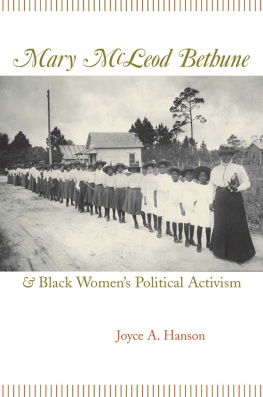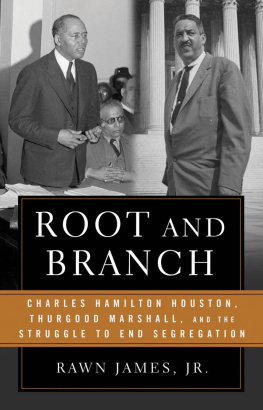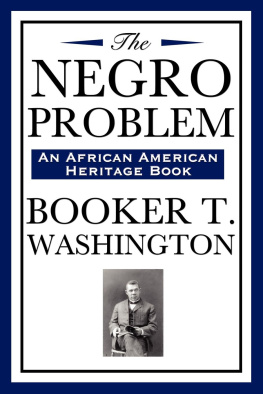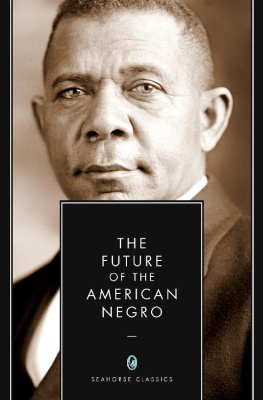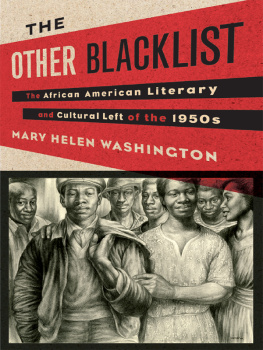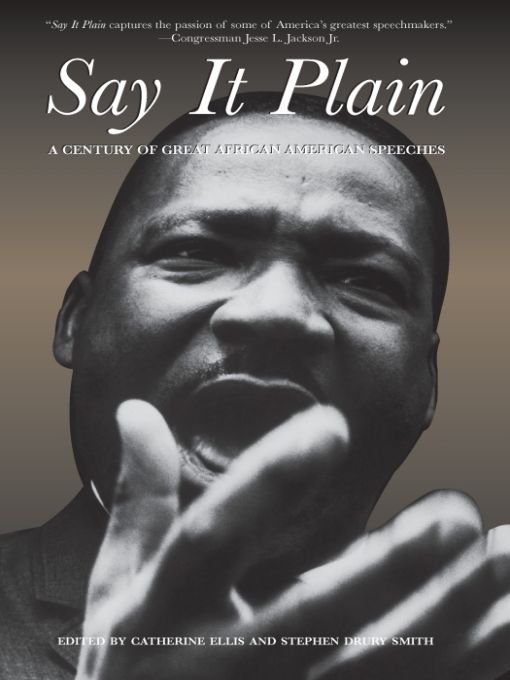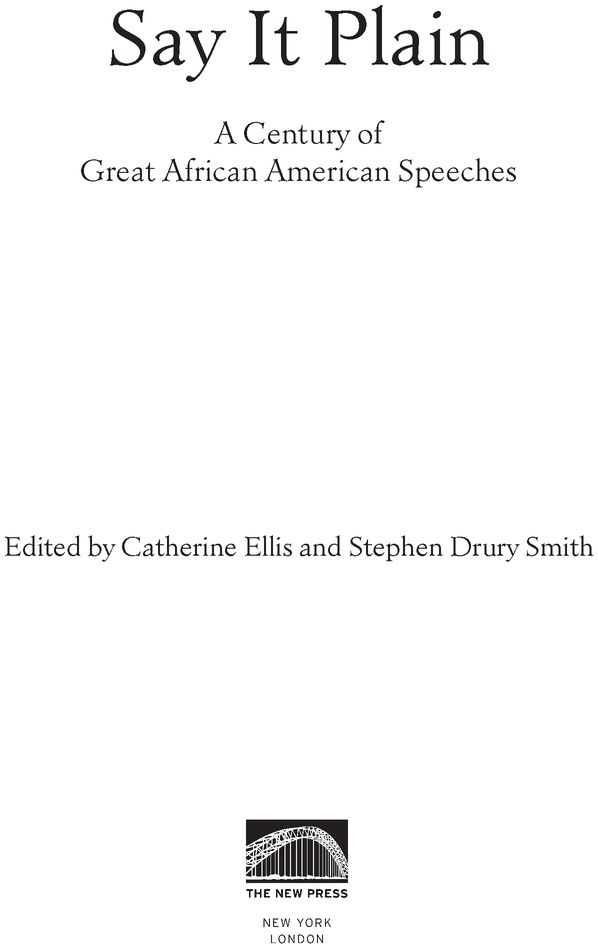Table of Contents
For Nina and Kobe,
Henry and Ben
PREFACE
Say It Plain is a sampling from the great stream of words spoken by black Americans as they exhort the nation to make good on its democratic principles. Delving into little-known historic audio recordings, we cast down our buckets into that broad, deep current. Our hope is that readers will find the texts of these speeches to be a satisfying, moving experience.
One influence on this project is the history of technology. Audio recording of public figures dates back only to the late nineteenth century. Early recording equipment was too primitive to capture live events. Most records were cut in a studio or a private room. Phonograph and wire recorders became better and less expensive over time, but until the 1960s the practice of making audio recordings was generally left to professionals in the music and radio industries. Furthermore, African Americans were generally excluded from much of mainstream Americas public discourse, whether written on paper or cut into the grooves of a phonograph record.
Another challenge was findingand getting permission to usehistoric recordings of black oratory. We got generous help from a number of archivists, librarians, and scholars in our search for sound. Family members and descendants of important African American orators also assisted. But many audio collections remain unpreserved or uncatalogued for lack of money or lack of institutional interest. In some cases, copyright holders demanded such high permission fees that important, historic speeches were placed outside the reach of this project. In other cases, the copyright holders declined our request outright, including the heirs of Malcolm X.
Finally, there are the limits of space. Weve tried to present a compelling and illuminating cross section of black political oratory from the past one hundred years. But there remain legendary speakers, significant events, and important political perspectives we wanted to include that had to be left out. We hope future projectsin books, over the airwaves, and on the Internetwill coax more of this great legacy of African American oratory back into our hearing.
About the Transcripts
The transcripts for this book were drawn from recordings. In some cases, we were able to start with existing transcripts in the public domain and check them against the recordings. In other instances, we produced the transcripts ourselves, with the help of dedicated colleagues.
On some occasions the available text of a speech differed from the recording. Speakers commonly diverge from their written textswhich are sometimes speeches they give repeatedlybut no one takes the time to document the extemporaneous remarks. Each transcript here has been checked against the recordings by at least three sets of ears. But, occasionally, words in some of the recordings can be difficult to hear. Weve used our best judgment to make the most faithful transcripts we can.
Catherine Ellis and Stephen Drury Smith
ACKNOWLEDGMENTS
We would like to thank Marc Favreau at The New Press for offering us the chance to assemble this anthology of African American oratory. We received tremendous help from our colleagues at American Radio Works and American Public Media, especially the redoubtable Ellen Guettler. We are also indebted to Neil Tassoni, Carey Biron, Bente Birkeland, Samantha Kennedy, Misha Quill, and Sasha Aslanian. We are grateful to Bill Buzenberg for his support of this project, and to Sara Meyer for her archival assistance.
We have enjoyed the goodwill and intellectual generosity of many researchers and archivists, including: Marilyn Costanzo at Boston Universitys School of Theology Archive, Kai Jackson at the Howard Thurman Center at Morehouse College, Chuck Howell at the University of Marylands Library of American Broadcasting, Mark Torres and Brian De Shazor at Pacifica Radio Archives, and J. Fred MacDonald at his archive in Chicago. We are also grateful to the staff of the Miller Center of Public Affairs at the University of Virginia, the staff of the Vincent Voice Library at Michigan State University, and to Shola Lynch and Patricia Thompson. Several scholars helped guide our research. Thanks go especially to James Cone, Randall Burkett, Barbara D. Savage, David Levering Lewis, and James Horton.
Finally, we are most grateful to the wonderful oratorsor, in some cases, their heirswho gave us permission to include the speeches in this collection.
INTRODUCTION
Rooted in the strong oral traditions of African culture, the act of public speech-making has historically been much more than just a means of communication for the African American people. Ancient Egyptians produced the earliest known written theoretical discussions of oratory, and formal instruction in rhetoric was an important part of their education system. Speech is explicitly recognized as an important instrument of social life, observed anthropologist Ethel Albert, commenting on the culture of Burundi. [E]loquence is one of the central values of the cultural world-view ; and the way of life affords frequent opportunity for its exercise. For early American blacks, bound in service to a land that claimed to be freedom-loving, public speaking was more than an important social instrument: it was a practical weapon against the power of slavery that sought to be all-controlling, a means to psychological and emotional survival, and a vehicle for maintaining personal dignity and self-respect. It was a means of resisting slaverys intent to reduce its victims to the level of subhuman property taking value solely from a masters appraisal.
Frederick Douglass, himself a former slave and a great advocate of antislavery, found his self-image in the language of freedom that allowed him to speak against the bondage into which he had been born. When he was a slave, thirteen years old and living in Baltimore, he happened upon a copy of The Columbian Orator, a collection of historically significant speeches compiled by New England educator Caleb Bingham. Having been taught to read by his masters wife, who broke both law and tradition in so doing, Douglass found the words in this little book inspiring and empowering. He purchased his own copy for fifty cents and read it over and over, practicing the rhetoric and taking courage from its message. He was especially attracted to a dialogue between a master and a slave in which the slave, after convincing his master to set him free, argued for the God-given right of human liberty and explained how much slaves hate those who withhold their freedom. As Douglass later recalled, I got a bold and powerful denunciation of oppression and a most brilliant vindication of the rights of man. It was with this foundation that Douglass felt equal to a contest with the religious advocate of slavery.
Most slaves encountered the rhetoric of protest in words spoken by community leaders. By the mid nineteenth century, the oratory of the black preacher had become legendary among African Americans, slave and free alike. His message of hope and deliverance, of protest and resistance, served as both admonition and prescription. He spoke to men and women struggling to maintain relationships and to hold families together in the face of overwhelming odds and the unrelenting power of slaveholders quest for ever-increasing profit. He spoke through biblical stories of the Israelites escaping slavery to the promised land, guided by wise men and protected by a mighty God. Christianity appealed to people of African ancestry bound in an unchristian-like slavery, in large part because it offered a message of redemption and salvation under the reign of a just God. Empassioned words confirming this belief provided the strength enslaved people needed to hope in the face of the hopelessness.


